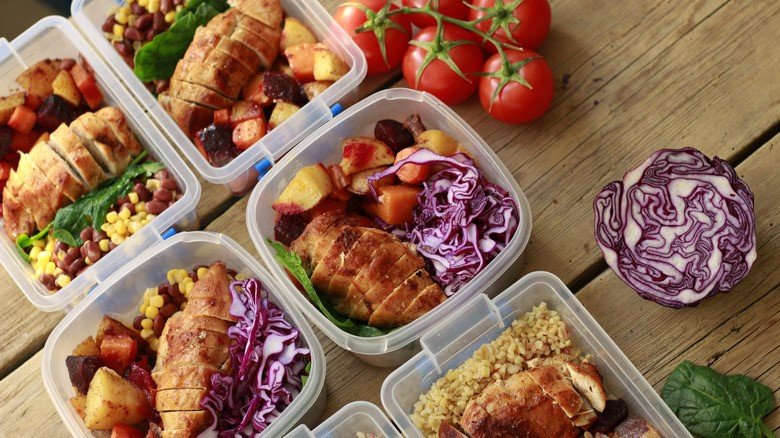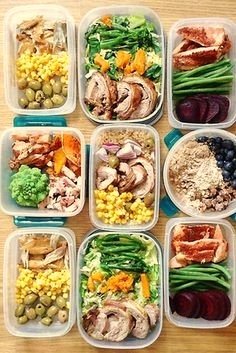10 Essential Cooking Tips Every Beginner Should Know
Cooking is one of the most rewarding life skills you can master. It not only saves money but also helps you eat healthier, impress friends, and connect with culture and family traditions. Yet, for beginners, stepping into the kitchen can feel overwhelming—recipes seem complicated, ingredients confusing, and techniques intimidating.
But here’s the secret: you don’t need to be a professional chef to make delicious meals. With the right tips and mindset, anyone can become confident in the kitchen.
This beginner’s guide covers 10 essential cooking tips every aspiring home cook should know, enriched with real-life examples, case studies, and stories to inspire you.
1. Master the Basics of Knife Skills
Your knife is your best friend in the kitchen. Good knife skills make cooking safer, faster, and more enjoyable.
Story: When Sarah, a college student, started cooking for herself, she used a dull knife and struggled to chop onions. After learning how to hold a chef’s knife properly and practicing the “claw grip,” her prep time halved, and her meals became more consistent.
Quick Tips:
Always keep knives sharp (a dull knife is more dangerous).
Use the claw method: tuck fingertips under while holding food.
Learn basic cuts: dice, slice, and julienne.
2. Learn to Season Properly
Seasoning can transform bland food into something flavorful and memorable. Salt is the most important seasoning—but how and when you use it matters.
Case Study: A cooking class in New York compared two identical chicken soups: one seasoned gradually during cooking, and the other salted only at the end. Students unanimously preferred the first—layered seasoning enhanced depth of flavor.
Quick Tips:
Season as you cook, not just at the end.
Taste frequently and adjust.
Balance flavors with salt, acid (lemon/vinegar), and sweetness.

3. Don’t Overcrowd the Pan
When pan-frying, crowding ingredients lowers the temperature, causing steaming instead of searing.
Story: John, a beginner cook, couldn’t understand why his chicken breast always turned pale and soggy. His mistake? He piled too much meat in a small skillet. Once he cooked in smaller batches, his chicken browned beautifully with a crispy crust.
Quick Tips:
Give ingredients room to breathe.
Use a larger pan or cook in batches.
High heat works best for searing.
4. Taste As You Go
The best chefs don’t just follow recipes—they taste constantly. Adjusting flavors as you cook prevents unpleasant surprises at the table.
Case Study: Chef Gordon Ramsay famously insists his students taste their dishes at every step, teaching them that cooking is about developing intuition, not just following instructions.
Quick Tips:
Taste after adding key ingredients.
Adjust seasoning gradually.
Trust your palate—recipes are guides, not strict rules.
5. Prep Before You Start (Mise en Place)
French chefs call it mise en place—“everything in its place.” Having ingredients chopped, measured, and ready makes cooking smoother and less stressful.
Story: Maria, a busy mom, often burned dishes because she’d scramble to chop vegetables mid-recipe. After adopting mise en place, cooking felt calmer, and her meals turned out consistently better.
Quick Tips:
Read the recipe fully before starting.
Prep all ingredients ahead.
Keep tools close at hand.
6. Respect Heat and Temperature
Knowing when to use low, medium, or high heat is crucial. Many beginners either cook too hot and burn food, or too low and end up with undercooked meals.
Case Study: A culinary school in London ran tests showing beginners often cooked pasta at too low a boil. The result? Sticky, uneven noodles. With proper high heat and salted water, pasta turned out perfectly al dente.
Quick Tips:
Use medium-high for searing, low for simmering.
Preheat pans before adding ingredients.
Don’t constantly move food—let it cook properly.
7. Invest in a Few Quality Tools
You don’t need a fancy kitchen, but having the right tools makes all the difference.
Story: Lisa, who lived on takeout, decided to cook more at home. She invested in a good chef’s knife, a cutting board, and a cast-iron skillet. Suddenly, she could cook almost anything—stir-fries, steaks, omelets—without struggling.
Quick Tips:
Essentials: chef’s knife, skillet, saucepan, wooden spoon.
Choose durable over expensive.
Build slowly—add tools as you grow.
8. Learn a Few Versatile Recipes
Instead of memorizing dozens of complicated dishes, beginners should focus on a few versatile ones—like pasta, stir-fry, or roast chicken—that can be customized with different ingredients.
Case Study: A nutrition study showed that young adults who mastered just five core recipes were more likely to cook at home regularly and eat healthier long-term.
Quick Tips:
Learn one pasta, one soup, one stir-fry, and one roasted protein.
Switch seasonings and ingredients for variety.
Build confidence by repetition.
9. Practice Patience
Cooking takes time. Beginners often rush—stirring too much, flipping food early, or cranking up the heat to speed things up. Patience leads to better flavor and texture.
Story: David tried to make caramel but kept burning sugar by rushing the process. After learning to cook slowly and let the sugar melt at its pace, he mastered caramel sauce and gained confidence.
Quick Tips:
Let meat rest before cutting.
Don’t stir constantly unless required.
Slow simmer = deeper flavor.
10. Don’t Fear Mistakes
Every good cook has burned rice, oversalted soup, or undercooked chicken at some point. Mistakes are part of learning.
Case Study: Julia Child, one of the most beloved chefs, once famously dropped a potato pancake on live TV, scooped it back into the pan, and said: “Always remember, if you’re alone in the kitchen, no one will know.” That confidence helped her teach millions that cooking is about joy, not perfection.
Quick Tips:
Write down what went wrong and adjust next time.
Repurpose mistakes (oversalted soup? Add potatoes or water).
Keep experimenting—you’ll improve with practice.

Conclusion
Cooking is less about memorizing recipes and more about building skills and intuition. By mastering these 10 essential tips—knife skills, seasoning, pan space, tasting, prep, heat control, good tools, versatile recipes, patience, and resilience—you’ll build confidence in the kitchen.
Remember, even world-class chefs started with burnt eggs or soggy pasta. The key is to keep practicing, stay curious, and enjoy the journey.
Cooking at home connects you with your health, your culture, and your loved ones—and that’s worth every effort.
References
Julia Child – The French Chef archives.
New York Times Cooking – Knife Skills for Beginners.
BBC Good Food – Seasoning and Flavor Balancing.
Serious Eats – Pan Crowding: Why It Matters.
America’s Test Kitchen – The Importance of Tasting as You Go.
Culinary Institute of America – Mise en Place in Professional Kitchens.
The Guardian – Cooking with Heat: Temperature Control.
Harvard School of Public Health – Benefits of Home Cooking.
Smithsonian Magazine – The Rise of Julia Child.
Bon Appétit – Beginner Cooking Tips That Actually Work.
